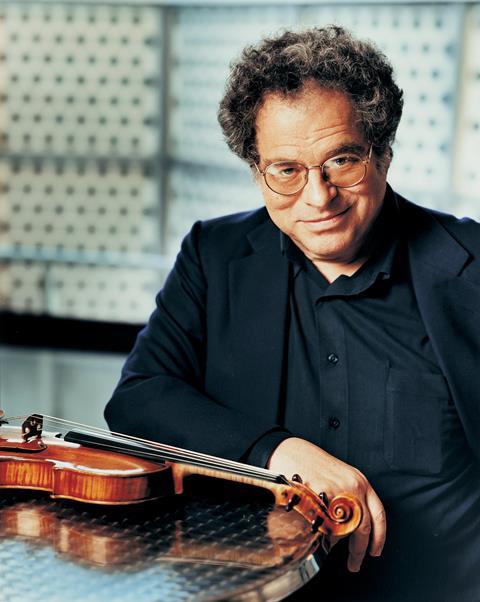In celebration of the violinist’s birthday on 31 August, enjoy six pearls of wisdom from the man himself

On recording: ‘When I release a recording I just let it go. I feel that every recording should be truly representative of what I was doing at the time. So I don’t have favourites. Every now and then, by chance I will hear something I have recorded – say, if it’s on the radio while I am in the car – and I will think to myself, “Hmmm, interesting, that’s good playing. Who can play that well? It had better be me!” That’s my arrogance talking. Of course, sometimes I think, “I’m pretty sure I wouldn’t play it like that – Oh my God, I hope it’s not me!”’
On teaching: ’I always say to my students that they should never miss an opportunity to teach, because if you teach others, somehow you teach yourself. Of course, all of my students are at a pretty high level and everyone can play the violin. So my teaching is not so much about getting the right results technically; it’s much more about musical development – what I can say to these kids to make them fine musicians. That, for me, is the real challenge, because when you are teaching, the analytical process has to be different. I have to be very careful when describing concepts such as colour and phrasing to be as clear as possible. Working out what I want to say in this very considered way crystallises ideas in my own playing.’
On engaged learning: ’When I first studied with Ms DeLay I was taken aback. “Sugarplum,” she said to me in her Kansas accent, “what do you think you could do to improve that sound?” I was quite put out as I wasn’t used to someone asking me to think for myself. But lo and behold, this is now the way that I teach! My students become an active part of the learning process. This is extremely important, because when something goes well, they can take credit. One of the worst things that can happen is for a student to follow orders blindly – if there is suddenly nobody to enforce the rules, what happens to the playing? It’s all part of becoming a thoughtful musician.’
Read: ‘Play to the exit sign!’ - Pinchas Zukerman: A matter of time
Read: Itzhak Perlman: If you teach others, somehow you teach yourself
Explore more Featured Stories like this in The Strad Playing Hub
On practising slowly: ’If you practise slowly, you forget slowly. If you practise very quickly, maybe it will work for a day or two and then it will go away, because it has not been absorbed by your brain. It’s like putting a sponge in the water. If you let it stay there it retains a lot of water.’
‘Have an agenda and be patient. You cannot practise impatiently. I would rather practise with my head for two hours than mindlessly for eight!’
On silence: ’What do you do with rests in the music? Rests are so important in a performance because the rests give you the tension between notes. And the tension between notes is what makes stuff work. If there is no tension between notes, it’s very nice, but it doesn’t work’
Read: Never practise for more than five hours per day, says violinist Itzhak Perlman
Watch: Violinist Itzhak Perlman on the importance of silence
On pizza: ’These are not Italian mushrooms. These are actually Shiitake mushrooms which are sautéed in Italian olive oil. So this is a very ecumenical kind of a pizza’
[SPOILER] ’Report on the pizza: absolutely delicious!’
Watch: Itzhak Perlman swaps out violin for pizza oven
Read: ‘It’s always a reward to be on stage’ - Maxim Vengerov on 40 years of performance
Discover more Featured Stories like this in The Strad Playing Hub











































No comments yet